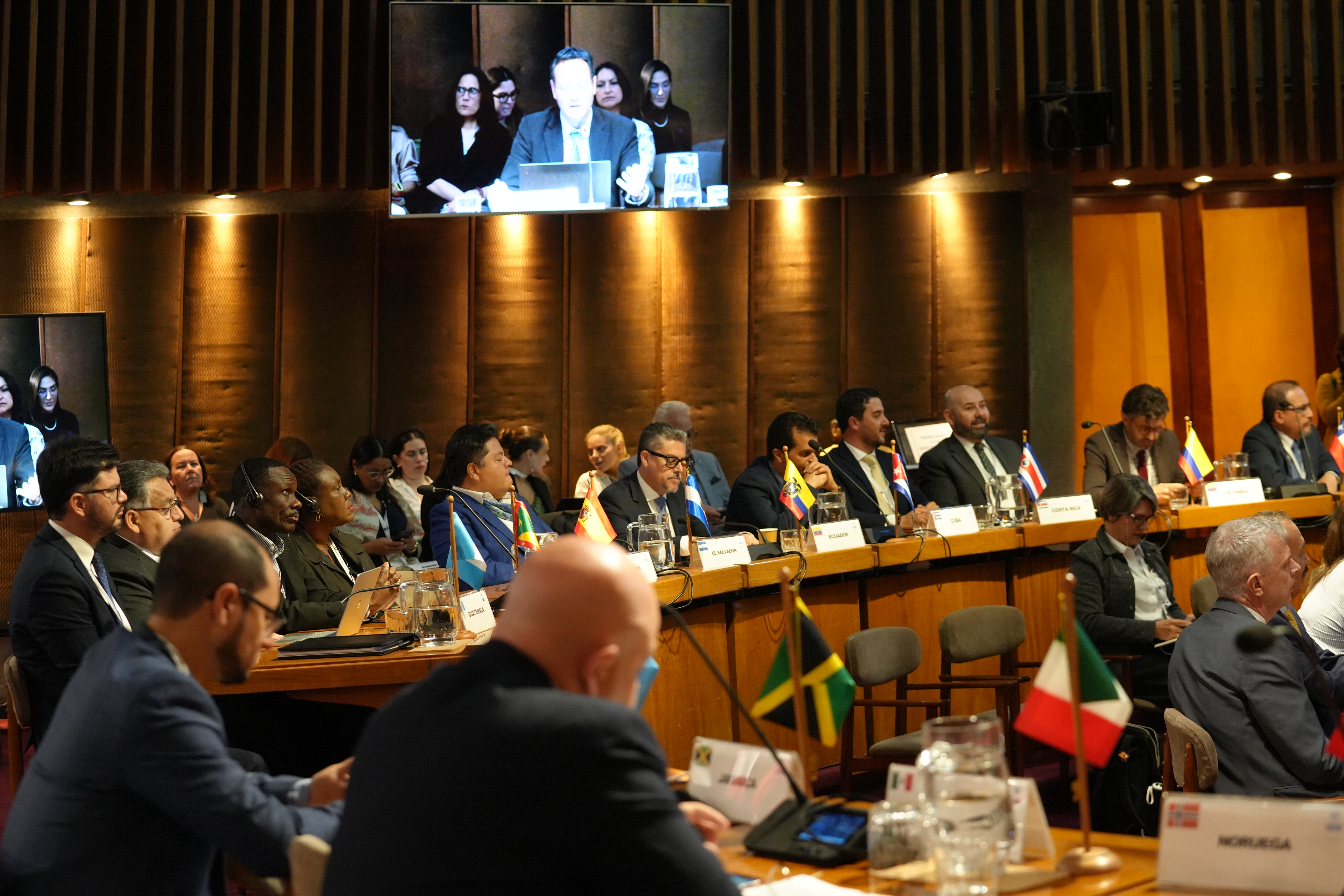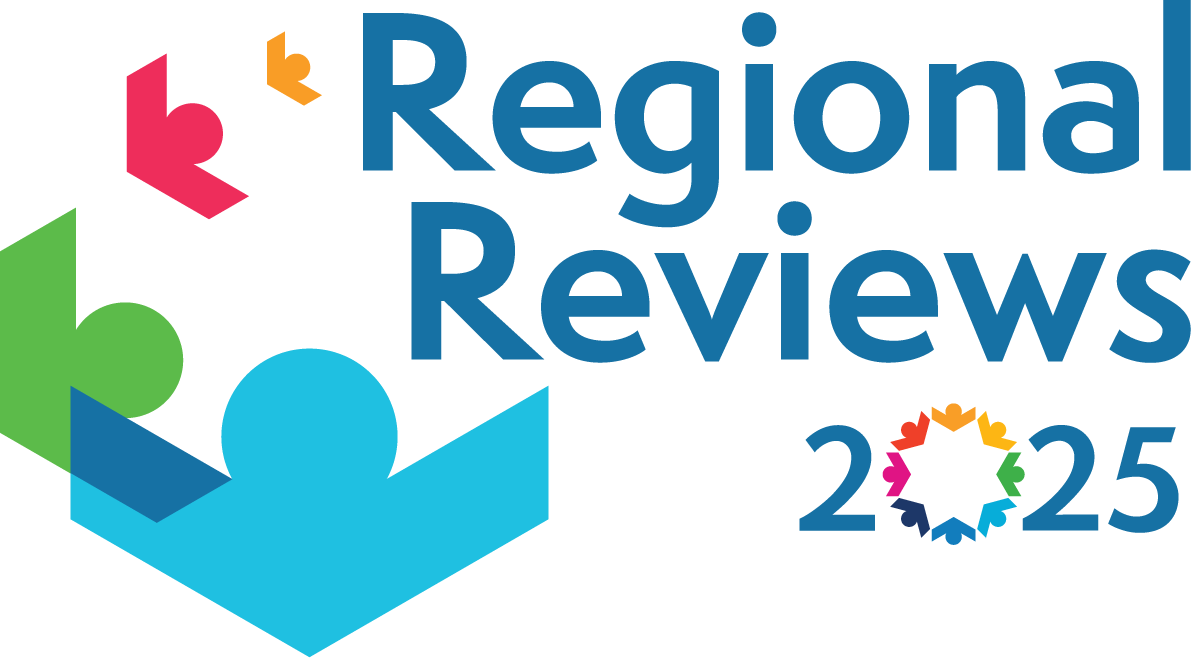Countries Reaffirm Their Commitment to Implementing the Global Compact for Safe, Orderly and Regular Migration in Latin America and the Caribbean
Work area(s)
At the closing session of the global agreement’s second regional review meeting, participants agreed on the importance of respecting and promoting the rights of migrants.

Representatives of Latin American and Caribbean countries, international organizations and civil society agreed today on the need to defend the principles of the Global Compact for Safe, Orderly and Regular Migration, to strengthen regional cooperation and build a new narrative that would recognize migrants’ multiple contributions to sustainable development, at the closing session of the second regional review meeting of the global agreement, which concluded today at ECLAC’s main headquarters in Santiago, Chile.
The gathering – organized by the Economic Commission for Latin America and the Caribbean (ECLAC) and the International Organization for Migration (IOM), in their capacity as co-chairs of the Regional United Nations Network on Migration – brought together more than 350 people who attended in person.
Participating in the meeting’s closing segment were Alejandro Solano Ortiz, Vice Minister of Multilateral Affairs of Costa Rica, the country serving as Chair of the regional meeting; Simone Cecchini, Director of the Latin American and Caribbean Demographic Center (CELADE)-Population Division of ECLAC, speaking on behalf of the Commission’s Executive Secretary, José Manuel Salazar-Xirinachs; Jonathan Prentice, Head of the Secretariat of the United Nations Network on Migration; and Blanca Gomez de Melgar, Member of the Association Committee of Relatives of Missing Migrants of El Salvador.
“The challenge we face ahead is not minor. Migration dynamics continue evolving and our capacity to adapt and respond will depend on the solidity of our coordination, our cooperation and the commitment of all actors,” Vice Minister Alejandro Solano Ortiz stated in his remarks.
He added that migration is, above all, an expression of the human capacity to seek better opportunities and contribute to the societies in which people establish themselves.
“Our duty is to ensure that this process occurs with dignity and security,” he emphasized.
Meanwhile, Jonathan Prentice, Head of the Secretariat of the United Nations Network on Migration, stressed that despite the challenges and the gaps existing in the implementation of the Global Compact, the region should celebrate the success achieved to date.
“We have to keep working on strengthening stakeholder participation and support the implementation of the available tools,” he indicated.
Blanca Gomez de Melgar called on States to work in pursuit of migration that is “safe, with dignity and heavy on rights,” emphasizing that it is critical to ensure a decent and respectful treatment of migrants that is aligned with human rights principles and social justice.
In his remarks, Simone Cecchini, Director of CELADE-Population Division of ECLAC, underlined the urgency of having timely and broken-down data on migrants that would enable migration governance and public policies based on reliable information.
Simone Cecchini stressed the importance of building a new narrative that would recognize migrants’ multiple contributions to sustainable development. Furthermore, he called on countries to strengthen cross-border cooperation and bolster access to clear, accurate and accessible information on safe and regular migration pathways.
“In a very complex global scenario, and in a region that has seen a drastic change in the direction of migration flows, let’s continue making our best effort to ensure that migrants are treated with dignity and respect, their rights are protected and they can develop all their potential in order to contribute to the sustainable development of their communities of origin and destination,” he concluded.
The Global Compact for Safe, Orderly and Regular Migration is a non-legally binding cooperation framework that recognizes that no State can address the migration issue on its own, given its transnational and multidimensional nature. It consists of 23 intertwined objectives, under a series of cross-cutting and interdependent principles related to multilateralism. It is the first UN global agreement to establish a shared approach to international migration in all its dimensions.
Related content

The Challenges Posed by Migration Require a Multilateral Response, Promoting Co-Responsibility among States and Considering the Full Migration Cycle
The second regional review meeting on implementation of the Global Compact for Safe, Orderly and Regular Migration was inaugurated today at ECLAC’s main headquarters in Chile.

Second regional review meeting on the implementation of the Global Compact for Safe, Orderly and Regular Migration
The regional review meeting will be held on March 18-20, 2025 at the United Nations Economic Commission for Latin America and the Caribbean (ECLAC) headquarters in Santiago, Chile. It will begin with…
Related event

Second regional review meeting on the implementation of the Global Compact for Safe, Orderly and Regular Migration
The regional review meeting will be held on March 18-20, 2025 at the United Nations Economic Commission for Latin America and the Caribbean (ECLAC) headquarters in Santiago, Chile. It will begin with…